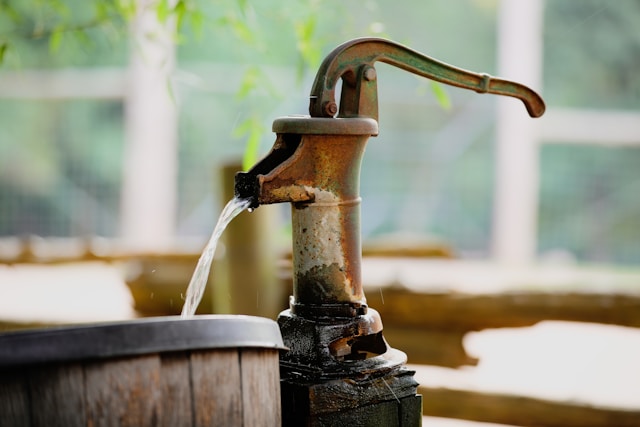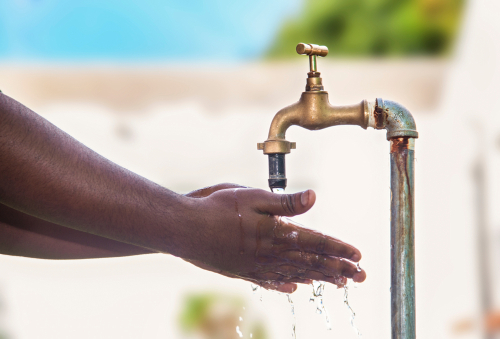South Africa, like many other countries, faces ongoing challenges related to water scarcity, unpredictable rainfall, and an increasing demand for reliable water sources. While good, wet winters offer temporary relief and the hope of fewer water restrictions in the following summer, there is no certainty in this respect, especially as global climate patterns continue to shift. In this context, boreholes and pumps play an essential role in ensuring access to a clean, dependable water supply for millions of people. These systems are particularly critical in rural communities, agricultural regions, and even urban areas where municipal water supply can be inconsistent or insufficient. Boreholes are essential in South Africa’s drier provinces, such as the Karoo, spanning across the Western Cape, Northern Cape, Eastern Cape, and southwestern Free State provinces, as well as Limpopo, where surface water resources are limited or seasonal, and are also a great water and money saver in other areas.

What Are Boreholes and Pumps?
A borehole is a narrow, deep shaft drilled into the earth, most commonly used to access underground water sources, and undertaken by pump and borehole specialists. Once a viable aquifer is reached, a pump, whether electric, diesel, solar-powered, or manual, is installed to draw the water to the surface. The choice of pump often depends on depth, intended use, and the availability of electricity.
The combination of these two components allows for an independent, often off-grid, water supply. However, boreholes also serve other purposes, such as for geotechnical investigations, mineral exploration, and geothermal energy installations. Unlike wellpoints, boreholes are typically deeper and wider, requiring specialised drilling equipment for their creation. It’s important to note that “drilling” refers to the process of making the hole or shaft, while the “borehole” is the completed structure resulting from that process.
Are Plumbers Part of the Process?
In South Africa, plumbers play a crucial role in the effective operation of borehole systems, particularly in the installation of pumps and their integration with household plumbing. While specialised drilling contractors are responsible for drilling the borehole itself, it is the plumber who ensures that the system functions seamlessly within the home.
Their responsibilities include selecting and installing the appropriate submersible pump to extract water from the borehole, laying the necessary piping to transport water from the pump to the property, and connecting this supply to the existing household plumbing infrastructure. In addition, plumbers are often tasked with installing filtration or purification systems to ensure the water meets health and safety standards. Their expertise is essential for maximising the efficiency, reliability, and longevity of borehole water systems, making them an indispensable part of the process.
Key Characteristics of Boreholes
Boreholes are not universally the same; their design and construction vary based on their intended use and location. Here are some key characteristics that define boreholes:
- Shaft Width: Boreholes are distinguished by their relatively small diameter in relation to their depth, allowing for efficient access to subsurface resources.
- Depth: Typically, boreholes are drilled to depths of 20 meters or more, and they can be significantly deeper, depending on their purpose and the geological conditions encountered.
- Specialised Drilling Methods: The creation of boreholes employs specialised drilling rigs capable of penetrating diverse geological formations, including both unconsolidated sediments and hard rock.
- Diverse Purposes: Boreholes serve a variety of applications, including:
- Water Extraction: The primary function of many boreholes is to access groundwater for domestic, agricultural, or industrial uses.
- Geotechnical Investigations: Boreholes are crucial for assessing soil and rock properties, which is essential for construction and engineering projects.
- Mineral Exploration: They are employed to locate and evaluate mineral deposits, contributing to resource management and extraction efforts.
- Geothermal Installations: Boreholes help tap into geothermal energy, providing a renewable source of heating and cooling.
- Pilot Holes: Boreholes can also act as pilot holes for larger construction projects, such as installing piers or underground utilities.
- They are Distinct from Wellpoints: While both boreholes and wellpoints are used for water extraction, boreholes are generally deeper and more complex, in contrast to wellpoints, which are usually shallow and installed in sandy soils.
- Water Source: Boreholes access groundwater stored in aquifers – natural underground layers of rock or sediment that hold water, making them vital for a sustainable water supply.
- Water Quality: Water obtained from boreholes, being derived from aquifers, is often less susceptible to surface contamination compared to other sources. However, it is advisable to test and treat borehole water before consumption, especially for drinking purposes.
In summary, boreholes are versatile and essential tools for accessing underground resources and conducting a range of subsurface investigations, playing a critical role in water management and geological studies.
The Value of Boreholes and Pumps to South Africa
- Sustainable Water Supply
Boreholes access underground aquifers, offering communities and farms a dependable and potentially limitless source of water. When managed responsibly, this resource can provide a long-term solution to water scarcity. - Economic Benefits
Reliable water access boosts agricultural productivity, enabling farmers to cultivate more crops and sustain livestock more effectively. This leads to greater food security, higher incomes, and overall economic growth within local communities. - Ensuring Access to Drinking Water
In many South African rural communities, municipal water supply systems are often unavailable or unreliable. Boreholes provide residents with potable water, reducing dependence on rivers, dams, and stagnant water sources that may carry health risks such as cholera or typhoid. - Boosting Agricultural Productivity
Agriculture is a significant part of South Africa’s economy, particularly in provinces like Mpumalanga, KwaZulu-Natal, and the Western Cape. Borehole water supports irrigation and livestock farming, ensuring continued food production even during drought conditions. This helps farmers’ livelihoods and maintains national food security. - Household Water Supply
Many rural communities and even urban areas rely on boreholes for drinkable water, minimising the dependency on municipal supply systems. - Improving Public Health and Safety
In informal settlements and rural villages, the lack of clean water can lead to sanitation challenges and disease outbreaks. Access to reliable, clean water sources significantly reduces the risk of waterborne diseases by minimising reliance on untreated or contaminated surface water. Borehole systems provide consistent water access for drinking, washing, and sanitation, promoting better hygiene and reducing the incidence of waterborne diseases. - Disaster Resilience
In regions vulnerable to drought and water scarcity, boreholes provide a crucial safeguard against seasonal shortages. Reliable groundwater access can make the difference between survival and crisis during emergencies or prolonged dry periods. - Industrial and Mining Applications
Industries often require large quantities of water for various processes, and boreholes can provide a consistent supply. - Environmental Monitoring/Conservation
Boreholes can be utilised to monitor groundwater levels and quality, helping manage resources sustainably. When responsibly managed, boreholes support the sustainable use of groundwater, helping to protect surrounding ecosystems. Conversely, poor water management can lead to over-extraction, negatively impacting nearby rivers, streams, wetlands, and the broader environment. - Supporting Economic and Industrial Development
Commercial farms, factories, and mines across South Africa require reliable water supplies. Boreholes reduce reliance on overstressed municipal systems, helping industries function smoothly. This not only improves productivity but also attracts investment to areas where water scarcity might otherwise limit growth. - Promoting Environmental Sustainability
Water conservation is important in a water-stressed country like South Africa, and in Africa generally. When managed properly, boreholes offer a sustainable solution with a low environmental footprint. Solar-powered pumps, increasingly used in off-grid farming regions, provide an eco-friendly alternative to electricity- or diesel-driven systems. - Empowering Rural and Underdeveloped Communities
In rural South Africa, women and children often walk long distances to collect water, often from unsanitary sources. Community boreholes reduce this burden, freeing time for education, farming, and small business activities, and contributing to overall community development.
The Role of Pumps
Pumps are vital mechanical devices designed to move liquids from one point to another, making them an essential component of any borehole water extraction system. The type of pump selected depends on factors such as borehole depth, water yield, and intended use. The most common types include:
- Submersible Pumps
Installed below the waterline, these pumps are ideal for deep boreholes and capable of handling large volumes of water efficiently. Their submerged design helps prevent overheating and ensures consistent water delivery, even at significant depths. Submersible borehole pumps are the most common type used, and they are available in various sizes and materials to suit different depths and water quality. - Surface Pumps
Positioned above ground, surface pumps use suction to draw water from shallower boreholes. They are best suited for locations where the water table is relatively close to the surface. - Solar-Powered Pumps
Growing in popularity, especially in off-grid and rural areas, solar-powered pumps offer a sustainable and cost-effective solution. By harnessing renewable energy, they reduce both operational expenses and environmental impact while providing reliable water access. - Jet Pumps
Jet pumps operate by creating a vacuum using a combination of air and water pressure, effectively drawing water from shallow wells or boreholes. They are especially useful where submersible or surface pumps may not be practical.
Challenges and Responsibilities
For boreholes and pumps to function effectively and continuously in South Africa, proper management and maintenance are necessary, including:
- Regular Water Quality Testing to prevent contamination, particularly in mining areas where groundwater may be affected.
- Pump Maintenance to ensure continuous operation, especially in remote locations.
- Community Education on sustainable groundwater use to avoid over-extraction and aquifer depletion.
Conclusion and Final Note
In South Africa, where water security remains both an ongoing challenge and a national priority, boreholes and pumps offer a vital source of resilience and sustainability. These systems not only provide safe, dependable drinking water but also support agricultural productivity, drive industrial operations, and enhance the quality of life in vulnerable and underserved communities. As climate change intensifies and population growth increases pressure on already scarce water resources, the role of boreholes and pumps will become ever more critical to the country’s sustainable development.
Integral to modern water management, boreholes and pumps ensure reliable access to freshwater for a wide range of essential uses, ranging from household consumption and sanitation to farming and industry. Their contribution extends beyond immediate water supply; they foster public health, strengthen local economies, and encourage responsible environmental stewardship. As water demand continues to rise globally, the effective use and management of these technologies will be crucial to safeguarding precious water resources. Investing in quality borehole construction, regular maintenance, and efficient pumping solutions offers significant long-term returns, not only for individuals and communities but also for the health of ecosystems and the environment at large.
Finally, it should be noted that owners of boreholes that yield over 100 kilolitres per day are required to obtain a water license from the Department of Water and Sanitation, whilst those producing between 50 and 100 kilolitres per day must be registered with the Department of Water and Sanitation (DWS).
